When to plant pumpkins – for a bumper crop in time for Halloween
Discover when to plant pumpkins for a great Halloween harvest of these gourds that also make a delicious addition to many dishes
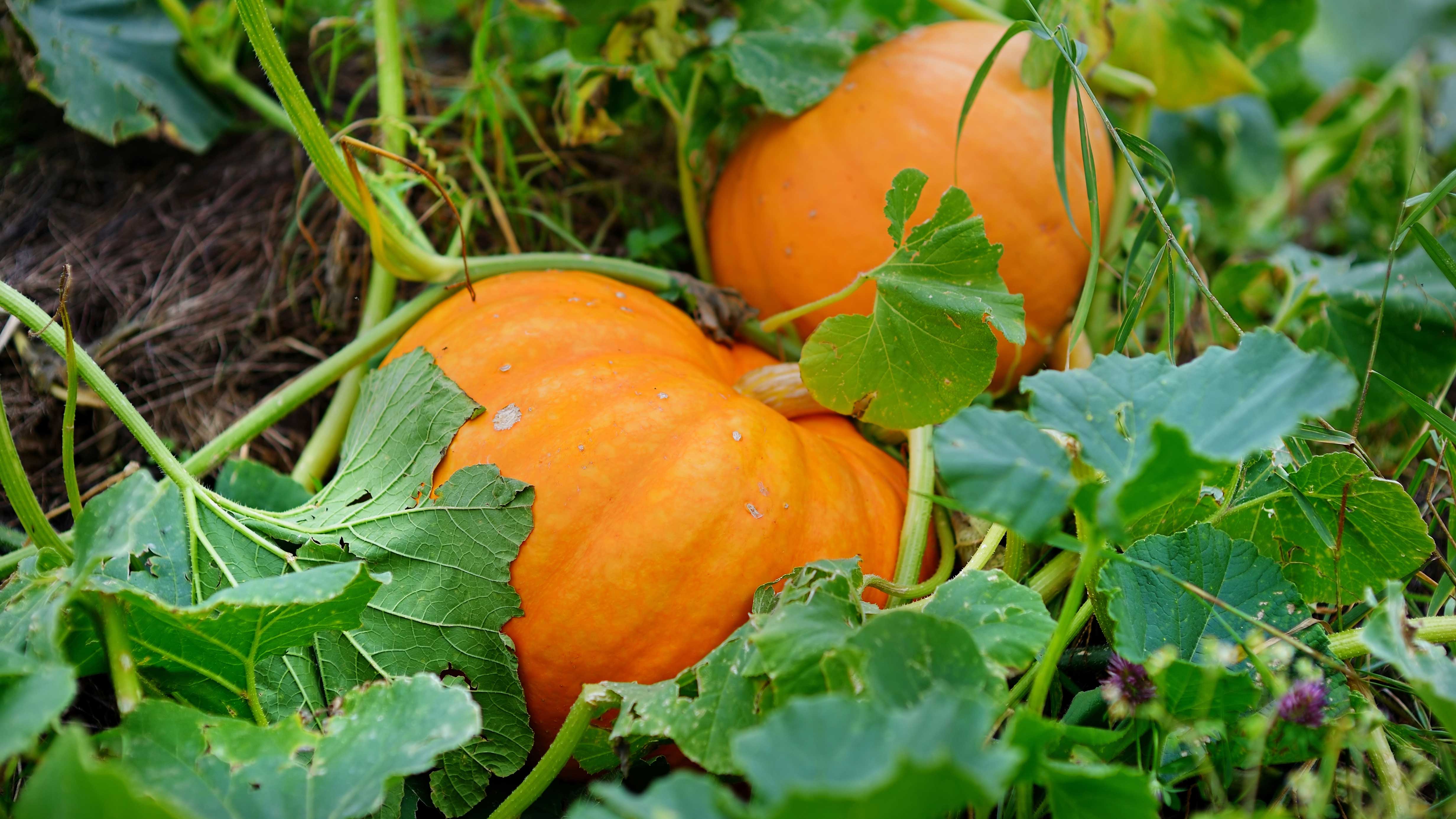
Knowing when to plant pumpkins is important as they have a long growing season. You need to prepare well ahead for the fall arrival of plump, orange pumpkins, ready to carve for Jack O’Lanterns, or varieties to roast for pies, add to stews and soups and many other culinary uses.
Pumpkins are a member of the gourd family, Cucurbitacae, and are actually considered a berry. Cucurbita pepo is the type of pumpkin used to make the jack-o-lanterns seen on Halloween, but there are many different sizes, shapes, colors and flavors.
Once you know how to grow pumpkins you can try many different varieties that you won't generally be able to find at the grocery store.
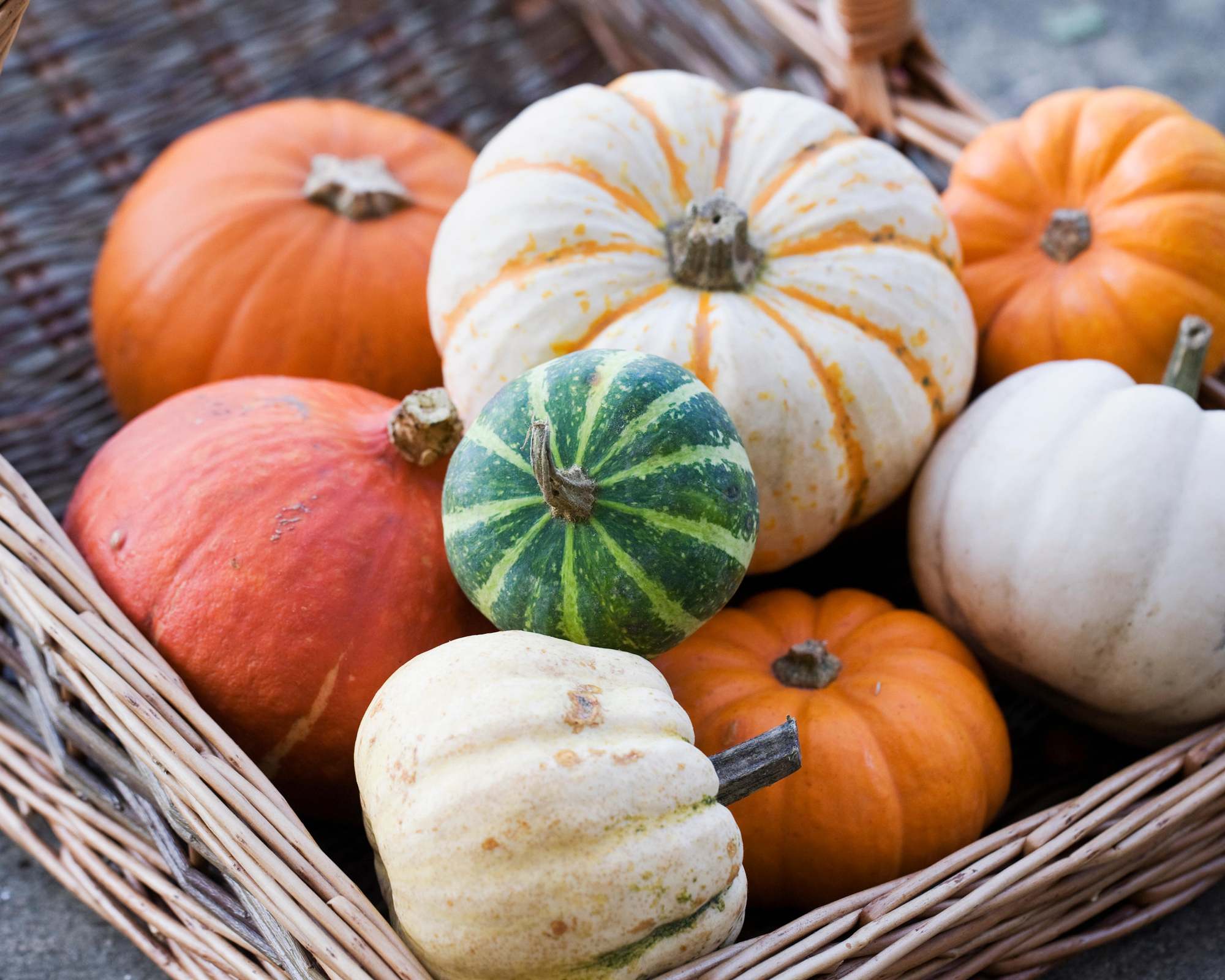
When to plant pumpkins
Because they have a long growing season, it is important to plant pumpkins as early as possible as part of your vegetable garden ideas.
'It is best to wait about 2-3 weeks after the last average frost date in your area, or until soil has reliably warmed to 70 °F,' says Shannie McCabe, horticulturist for Baker Creek Seeds based in Mansfield, Missouri.
Since there are a range of frost dates depending on where you live 'it is best to get online and research the average last frost date for your region,' Shannie adds.
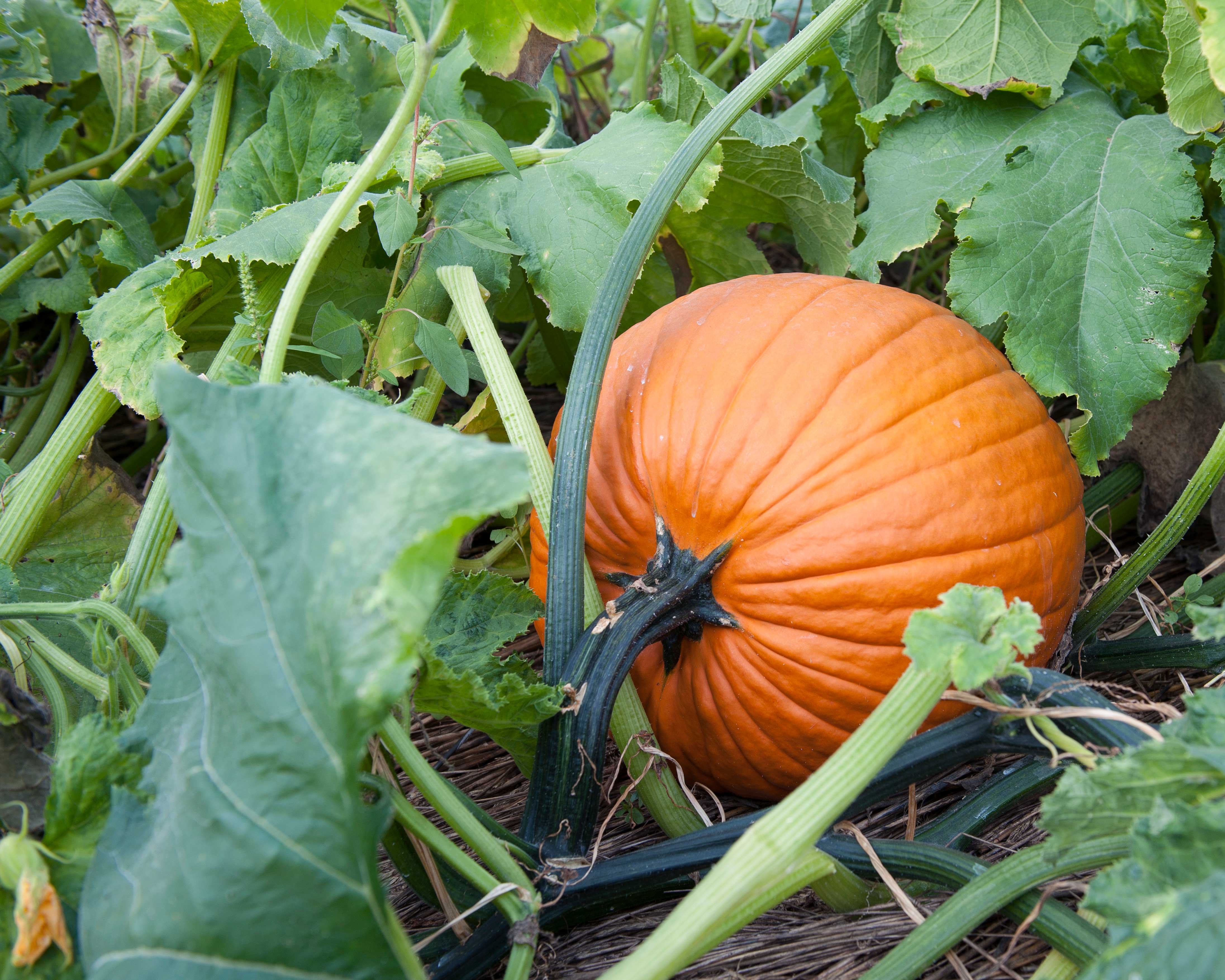
What is the best month to plant pumpkins?
The best month for planting pumpkins depends on whether you live in a warmer or colder region, and the hardiness zone for that area.
Check the seed packet for the suggested planting time for your zone. You can also look for frost dates in your region in the US by zip code on the Old Farmer’s Almanac.
For many regions the best time to plant pumpkins will be between April and June, but it will also depend on the variety and the time it takes for them to mature ready for harvest and there are various ways to know when to pick a pumpkin off the vine.
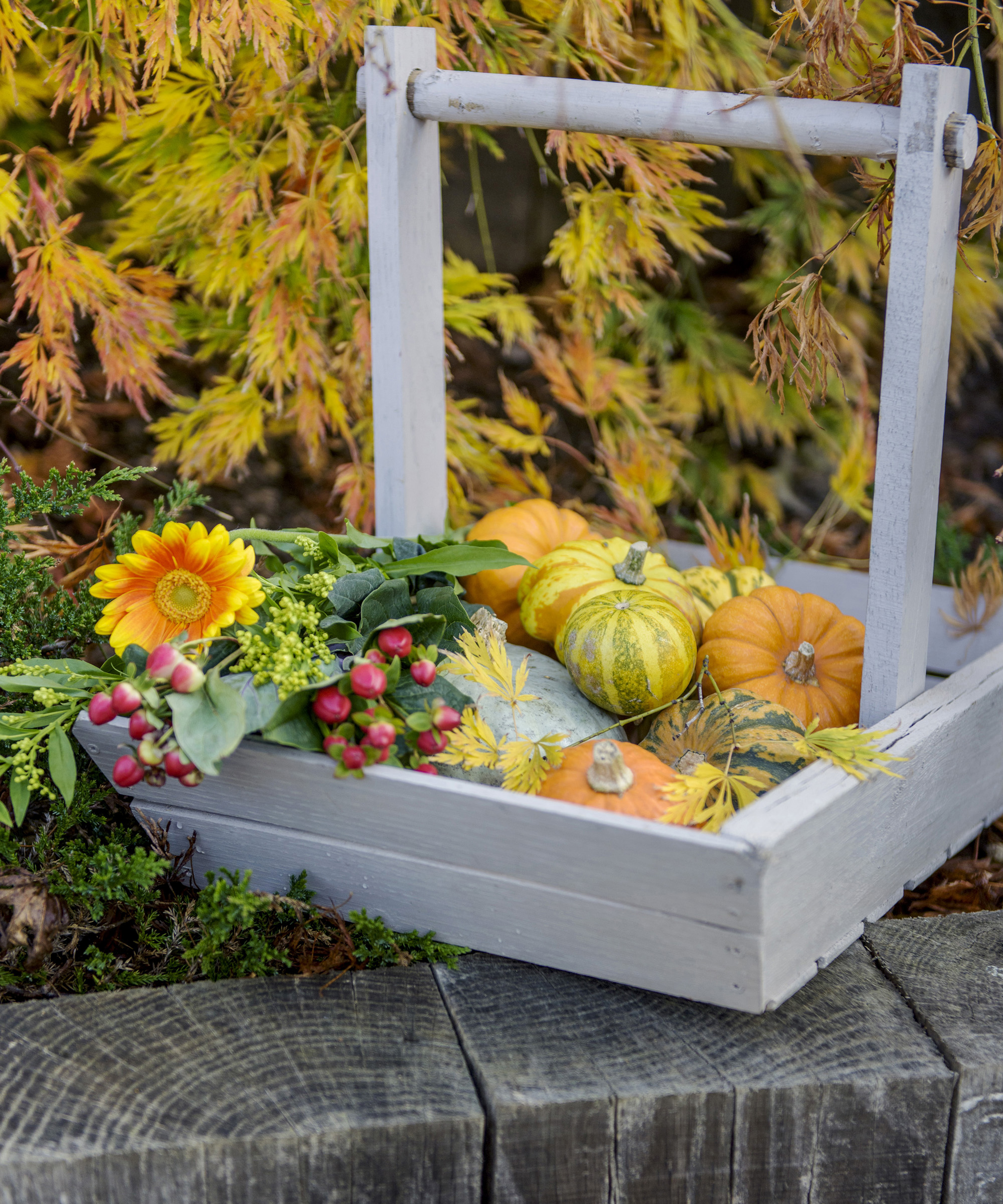
When to plant pumpkin seeds outside?
'Pumpkin seeds are ideal for planting directly outside once the danger of frost has passed,' says Matthew Stevens, Agriculture Extension Agent at NC State University Extension-Nash County Center in North Carolina.
'Pumpkin seeds are large enough and germinate quickly enough that they can be direct seeded into the soil with great success,' Matthew says.
'Growing pie pumpkins and carving pumpkins is very similar, as each likes the same types of soil and environmental conditions,' he adds. The timing for when to plant pumpkins of both varieties is essentially the same.
When is it too late to plant pumpkins?
When it is too late to plant pumpkins depends on the growing time for that variety, and also where you live.
'You can most certainly make later succession plantings as long as you do the math comparing the average days to maturity of the variety – listed on the back of the seed packet – and how many frost free days you have left until the average first frost date in your region,' explains Shannie McCabe.
'Add on two additional weeks of buffer to account for the slower growing habit after the summer solstice,' she advises. 'At Baker Creek, we like to plant pumpkins in mid June to avoid the peak of squash bug season, which happens in late May to early June in the Missouri Ozarks.'
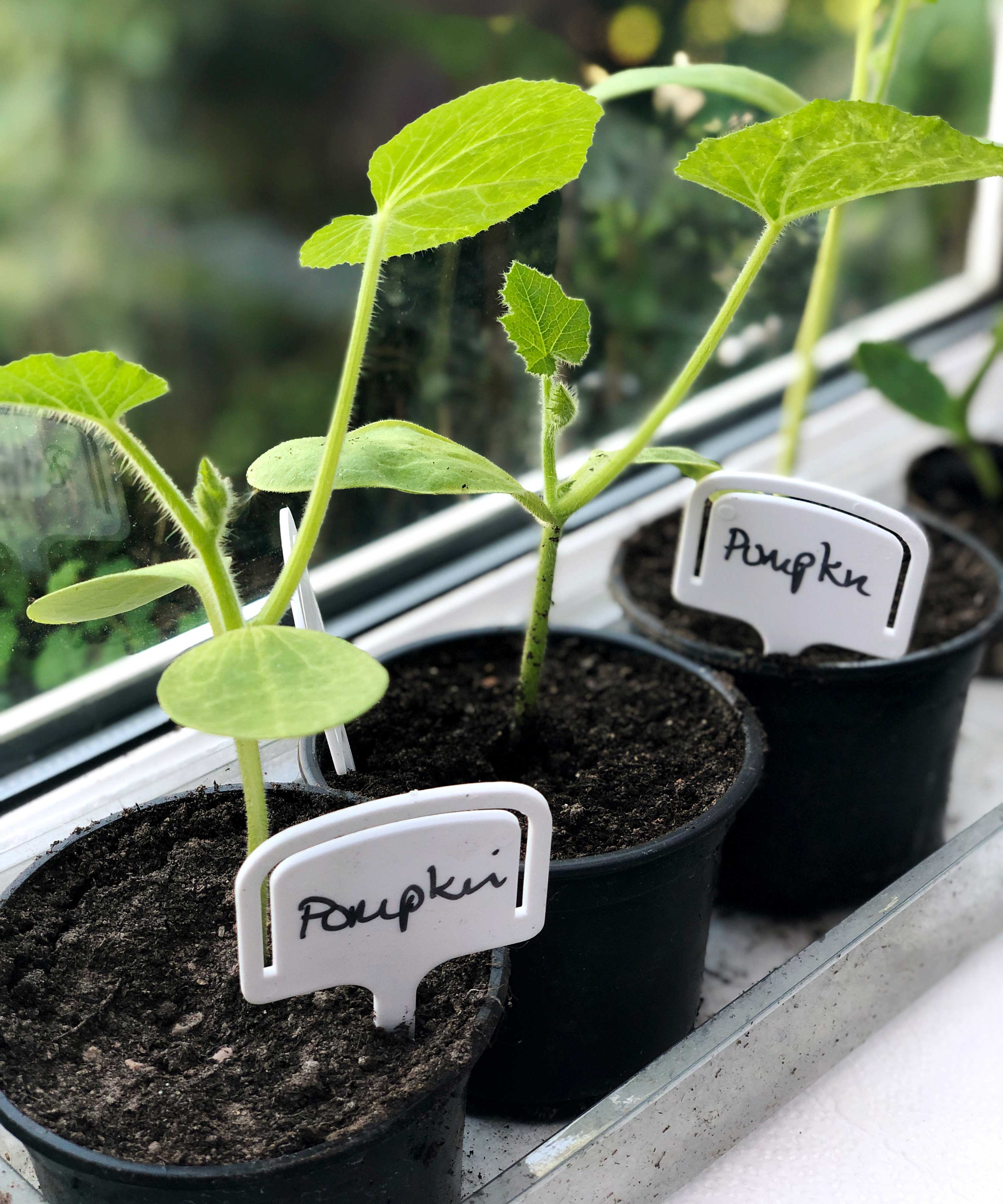
When to plant pumpkins indoors
If you want to give the pumpkin plants a bit of a head start, you could seed them indoors when planning greenhouse crops, 'but they will be ready to be transplanted after just a few weeks,' explains Matthew.
Chris Rusch, member of the Douglas County Master Gardeners program at Oregon State University, advises to start your plants in early April in a greenhouse or cold frame for transplanting out in May. 'Keep only the strongest plants,' he adds.
If you plant pumpkin seeds indoors, it is important to transplant them outside 'before they are three weeks old, as they will become stunted from being even the slightest bit pot bound,' says Shannie McCabe.
How long does it take pumpkins to grow?
It takes pumpkins approximately 75 to 100 days without frost to grow, which is why it is so important to know when to plant pumpkins, so that you get them started early enough to guarantee a fall harvest.
Check the seed packet for that pumpkin variety’s growing time in days. Then count backwards from the time you would like to have pumpkins available. Plant your pumpkin crop before or near that planting date, but after the last frost.
If your pumpkin has a growing season of 100 days, for instance, you will have to plant seeds in mid-July, at the latest, to have pumpkins ready for Halloween.
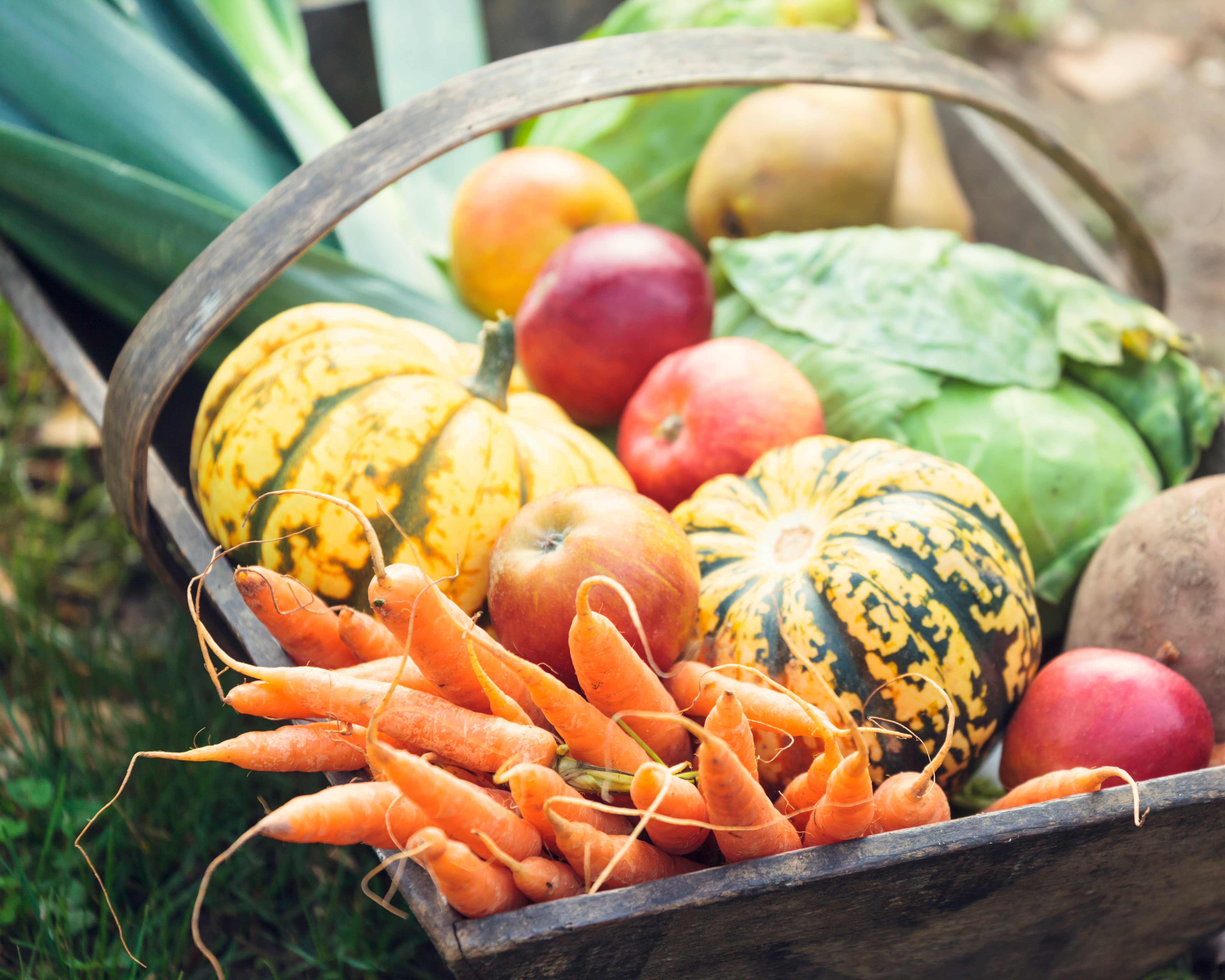
Do pumpkins like sun or shade?
'Pumpkins love fertile soil and full sun,' advises Chris Rusch.
'Before planting, spade the soil about a foot deep, and mix in some homemade compost, manure and well-balanced fertilizer,' he adds.
How much space do pumpkins need?
Pumpkins need lots of space to trail their thick vines. Rows should be at least six feet apart. If you're planning a kitchen garden, planting pumpkins at the outer edge of the garden allows you to train the vines away from other plants.
Pumpkins can be even be grown in a city garden, provided they have enough space and adequate soil.
'Pumpkins are vines that spread into rather large plants, meaning you need a good deal of space to grow even one pumpkin plant. Gardeners should plan to provide a bare minimum of six square feet of growing space per plant. Many typical pumpkin varieties can grow vines as much as 10 to 30 feet long, although there are some that are more compact,' explains Matthew Stevens.
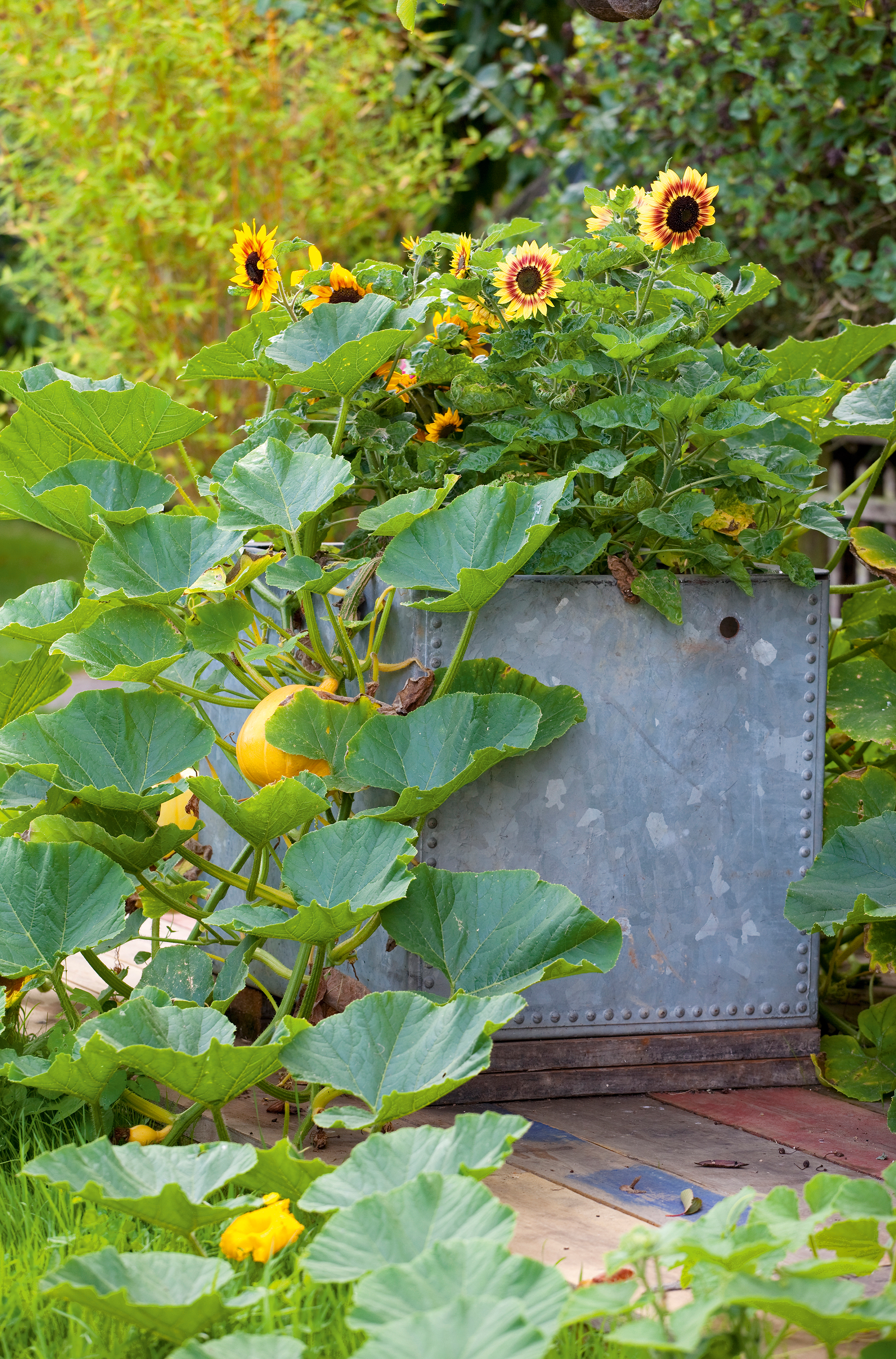
Will pumpkin seeds overwinter in the garden and come up in the spring?
'Anyone with a compost pile knows that pumpkin seeds will survive the winter and regrow in the summer – it is all too common to find a random pumpkin growing out of your compost pile in the spring,' explains Shannie McCabe.
However, pumpkin seeds are quite cold sensitive so it is not guaranteed that they will overwinter. 'Most likely pumpkin seeds survive in a compost pile because of the heat that is generated from the pile. A pumpkin seed sown into a regular garden bed does not have a great chance of surviving a hard winter,' she adds.
'Also consider that a fall sown pumpkin seed may germinate with the first warm days of spring, only to be killed with a late frost.'
How long do pumpkins need to grow?
Pumpkins needs quite a long time to grow. While some kitchen garden ideas (including radishes and salad leaves) can grow in as little as 25 days, pumpkins need notably longer to mature and can take between 80 and 120 days.
When to plant pumpkins for fall
Thoughts of when to plant pumpkins for fall may seem premature following midsummer – but this process is surprisingly more timely than it initially seems. Despite being synonymous with fall, pumpkins are sensitive to the cold, so it is essential to plant your pumpkins no later than early summer – for a healthy harvest for Halloween.
'Late spring to early summer is the best time to plant most pumpkins from seed, but it will depend on two things: the last frost of the season and the variety of pumpkin,' says garden expert and chef Sylvia Fountaine, the CEO and founder of Feasting at Home.
Is September too late to plant pumpkins?
Yes, sadly, it is too late to plant pumpkins in September. This is because the soil temperature is likely to fall under the ideal growing conditions, and they will not have matured before the end of the fall.
‘Pumpkin seed usually germinates in warm weather conditions, so you must sow them when the soil temperature is above 65°F(18°C),’ adds Richa Kedia, CEO of Nursery Lady. ‘So, the pumpkin seed needs to be planted before Mid July if you want to harvest that in the fall.’
Can you winter sow pumpkins?
No, it is not possible to sow winter pumpkins. As the experts suggest, at the latest, you should only plant between mid-May and mid-July. However, if you’re looking for some winter-friendly garden ideas, there are other options to consider. These include grapefruit, Mandarin oranges, and kiwi fruit.
Sign up to the Homes & Gardens newsletter
Design expertise in your inbox – from inspiring decorating ideas and beautiful celebrity homes to practical gardening advice and shopping round-ups.
R.W.Williams is a freelance writer who lives in the Green Mountains of Vermont. Her work has been seen in print and online publications for decades, and she continues to learn and grow every day in the industry. Over the years, she has written about lifestyle, gardening, pets, agriculture, sustainability, retirement, budgeting, celebrities, and more.
-
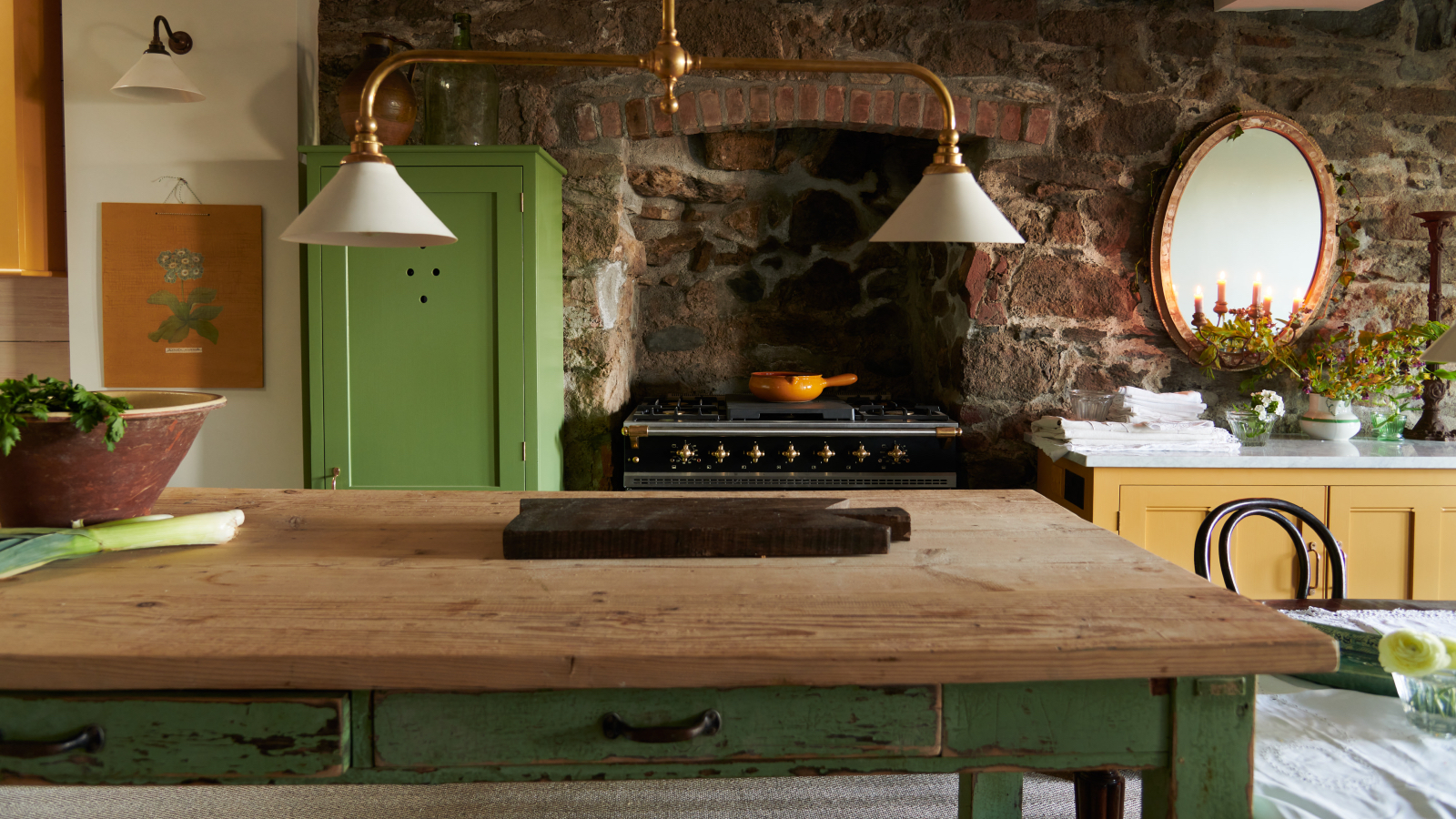 9 things you can clean with glycerin – this cheap and natural cleaner is perfect for indoor and outdoor use
9 things you can clean with glycerin – this cheap and natural cleaner is perfect for indoor and outdoor useFrom patio furniture to silverware, this hydrating and gentle cleaning agent will work miracles
By Ciéra Cree Published
-
 Martha Stewart's houses – inside her most iconic properties, from Cantitoe Corners to Turkey Hill
Martha Stewart's houses – inside her most iconic properties, from Cantitoe Corners to Turkey HillThe lifestyle guru built her legacy around her homes, some of which are the most recognized homes in modern American history – we explore her portfolio
By Megan Slack Published